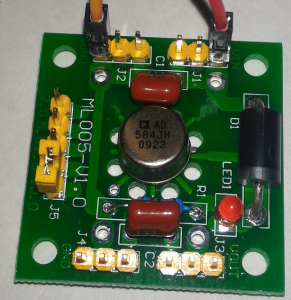 Our June Open Social evening takes place on Saturday 17th May from 7PM. That’s about as close to the longest day of the year that we can manage! Dublin Maker is approaching fast too. Our members are starting to get a bit edgy. Drop in, poke them a bit, and ask them if they have their projects all ready to go 🙂
Our June Open Social evening takes place on Saturday 17th May from 7PM. That’s about as close to the longest day of the year that we can manage! Dublin Maker is approaching fast too. Our members are starting to get a bit edgy. Drop in, poke them a bit, and ask them if they have their projects all ready to go 🙂
If you’ve never been to our Social, you’ll find it a great alternative Saturday evening in town. Come in and look around. If you’ve never been in before, we’ll give you the grand tour of the space. Talk to members and visitors about projects or things you’d like to do. If you like what you see, ask about joining as a full member. Hopefully there’ll be caint, ceol agus craic as usual. The space stays open until the last member is left……usually the small hours of Sunday morning.
Our Open Socials are always free to attend for both members and visitors alike. No need to book…. just turn up. You can drop in for 10 minutes, or stay the whole night. We have parking available. Bring beer, food, gadgets! Our doors are open from 7PM. Hope to see you there.
https://www.meetup.com/Tog-Dublin-Hackerspace/
https://lists.tog.ie/mailman/listinfo/tog
https://twitter.com/TOG_Dublin
https://www.facebook.com/togdublin

 If you work in industry or business, you probably have your electronic test gear and multimeters calibrated regularly. If you’re an amateur you probably don’t. We don’t have a fancy calibrator at TOG which can cost 1000’s and need regular calibration in itself. We do however have a 2 Euro voltage reference based on an Analog Devices AD548 voltage reference. Checking some of the multimeters that we have around, and the results are surprising.
If you work in industry or business, you probably have your electronic test gear and multimeters calibrated regularly. If you’re an amateur you probably don’t. We don’t have a fancy calibrator at TOG which can cost 1000’s and need regular calibration in itself. We do however have a 2 Euro voltage reference based on an Analog Devices AD548 voltage reference. Checking some of the multimeters that we have around, and the results are surprising. Our May Open Social evening takes place on Saturday 20th May from 7PM.
Our May Open Social evening takes place on Saturday 20th May from 7PM. Back by popular demand, it’s our electronic “Build-It” workshop in TOG on Saturday 20th May from 15:00 – 18:00. Many visitors to TOG tell us that they would like to get started with electronics, soldering or assembly, but they are unsure how to do so. This workshop will help. You get to build (and keep) an electronic kit. The kit that we have chosen is a line-follower robot car. It will follow a black line or any line where there is reasonable contrast. You can see a video of the kit in action, from our previous workshop
Back by popular demand, it’s our electronic “Build-It” workshop in TOG on Saturday 20th May from 15:00 – 18:00. Many visitors to TOG tell us that they would like to get started with electronics, soldering or assembly, but they are unsure how to do so. This workshop will help. You get to build (and keep) an electronic kit. The kit that we have chosen is a line-follower robot car. It will follow a black line or any line where there is reasonable contrast. You can see a video of the kit in action, from our previous workshop  This is a tale of going to TOG to do one thing, but ending up doing something completely different. The intention was to write some code to talk to some electronic hardware. Actuality was taking the lathe apart. You can’t get more different than that.
This is a tale of going to TOG to do one thing, but ending up doing something completely different. The intention was to write some code to talk to some electronic hardware. Actuality was taking the lathe apart. You can’t get more different than that.
 Hey All…… Sorry for the very short notice but…. this month’s Open Social evening takes place this evening, Saturday 15th April at 7PM.
Hey All…… Sorry for the very short notice but…. this month’s Open Social evening takes place this evening, Saturday 15th April at 7PM.